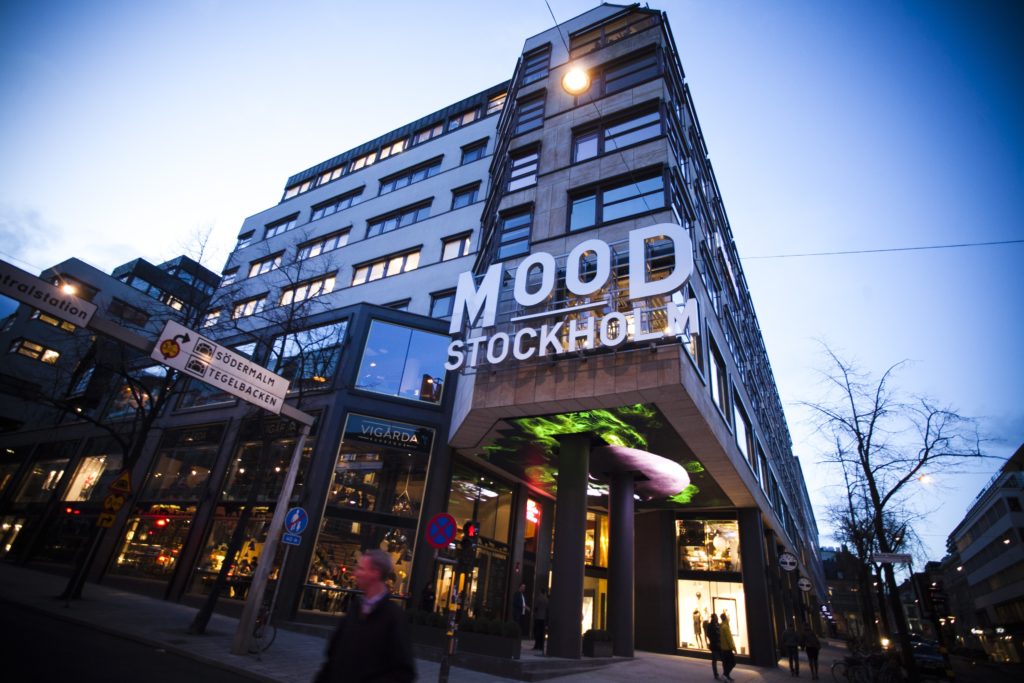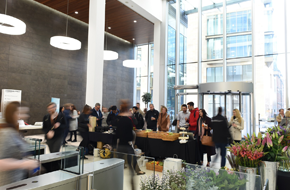There has never been a greater emphasis on the value of customer experience in the business. Property is waking up to this reality perhaps later than other industries.
Curran McKay, chief commercial officer at AskPorter, an AI software for managing residential blocks, explains: “PropTech is the tool that will give agents the time to deliver this higher-value experience. By eliminating the mundane, companies can focus their time on what they do best: maximising the value of the assets they sell, let and manage.”
Mallcomm by Toolbox Group is another example of how tech can benefit end users and the customer journey. Mallcomm can be used by managers, tenants, staff, suppliers, residents, third-party stakeholders, customers and visitors. It can be applied to retail, office, mixed-use, residential and airport communities. The service offers features across the full range of devices such as loyalty and special offers, community news, recruitment and smart building integration – access, climate control. There is also the opportunity for asset managers to run security and critical communications through Mallcomm as well as parking management, sales collection, operational workflow management; behind-the-scenes tasks are integrated with the user behaviour on the same app.
This product is operating in 22 countries in 11 languages. Clients include Unibail-Rodamco-Westfield, Klepierre, Savills and British Land. After being deployed, tenant feedback improved by 500% and satisfaction by 62%, the company says.

Mood Stockholm
One of Sweden’s largest real estate companies selected Mallcomm as the technology of choice to engage its communities and improve user experience across one of Europe’s most innovative mixed office spaces, marketplaces and their surrounding areas. AMF Fastigheter is the creator of iconic neighbourhoods such as Urban Escape at Brunkebergstorg and the development of the area around Mood Stockholm. The AMF portfolio features workplaces, retail concepts, creative meeting places, rooftop landscapes, unique hotels, restaurants, innovation centres and more.
Patrik Skoogh, project director at AMF Fastigheter, says: “We don’t just think about buildings, we think about places people interact with. Everything we do is about our customers so we provide the best experience they can get. That’s what tenants, employees, shoppers, creators, residents and visitors expect in today’s connected world.”
Michelle Buxton, CEO, Toolbox Group, says: “Mobile technology now allows us to control home appliances, answer the door, even control our cars. The Internet of Things set to consist of over 30 billion devices by 2020, just about everything around us will be connected via wireless networks. Millennials already assume everything is connected and will consider user experience that is not intuitive to be inferior.
“Being connected is all about a seamless experience. Removing barriers and making humans more efficient is one aspect. However, places are all about the people who interact with them, so to create good places we need to make it easy and pleasant to so do and make them feel part of a community and social ecosystem. It’s important for real estate also to realise that there is a definite blurring of lines between all the different users of real estate. Another major benefit of integrating all audiences in one platform is the immense value of data and insight that can be mined and then be used continually elevate the user experience.”
Equiem is a global property technology and services company best known for its tenant engagement app which can help employers attract the best talent by offering the right workspace experience. If the owners of buildings can create a winning end-user attitude with tenants, then those tenants are more likely to be productive employers, satisfying their staff in turn.
A recent survey by the UK and Ireland office of Equiem found that:

Equiem research
91% of respondents believe that the average UK / Irish office should place a greater emphasis on providing better on-site amenities and community events
89% of respondents say the average UK/Irish office should place a greater emphasis on providing convenience to people working there eg. order lunch/coffee to desks; have dry cleaning picked up etc.
67% of respondents say the opportunity to meet other people, not from their company and create community in a workplace is important to them
Equiem’s success in engaging the end user by meeting these demands is clearly seen in the number of new users it has added to its platform in the UK and Ireland over the past 18 months. Across 10 buildings, 13,500 individuals have registered and actively use the platform, via app or desktop.
Matt Forsum, associate at Spear Street Capital, said: “Bringing on Equiem allowed us to effectively create an engaging tenant experience in an efficient and creative way. Rolling out the platform in Ireland shortly after acquisition differentiated our project in the marketplace and allowed us to speak to new asset management initiatives we plan to bring to the park. The Equiem portal has been a huge success, not only for our tenants but for our own operating platform as well.”

Bronny Wilson, Equiem’s general manager
Bronny Wilson, Equiem’s general manager for the UK and Ireland, comments: “As occupiers fight to attract and retain the very best talent out there, workplaces and working environments have become crucial tools in the recruitment process. Effectively then, it’s those landlords that are able to appeal to the individual worker, who will ultimately satisfy occupiers and get ahead in the leasing game. It’s clear that owners who work hard to meet these criteria and ultimately satisfy the end user will be the ones that win the leasing battle in the long-term. Our technology provides landlords and managers not only with unique, targeted insight into user preferences but also with the tools to meet those preferences, satisfy occupiers and grow revenues.”
The impact of the end user when it comes to the overall balance sheet is backed up by the recent Cushman & Wakefield Nordic Offices Preview of the Future report which concludes that: “Addressing millennials’ working preferences will become key to businesses’ prosperity.”
The future is about the quality experience in all areas of life as the barriers between consumer and business worlds disappear. The winners will be the property companies that get this right before their competitors.
Power the Digital Transformation of the Real Estate at PropTech Europe, taking place 1-2 July in Paris!



